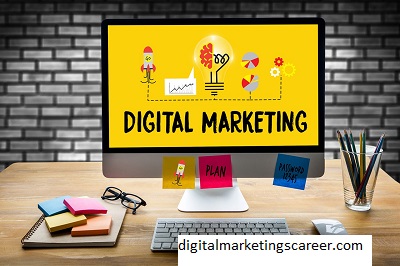Digital Transformation and Marketing: Navigating the Future of Business.
The term “digital transformation” has recently entered every discussion on business in every industry. In a nutshell, it is a remake in which digital technology stitches into all business layers, fundamentally altering the manner of operations for organizations and how they deliver value to customers. Therefore, this change is not only to the back-end operations and IT department but much more important to the world of marketing, which acts as a critical bridge for business with its consumers. Thus, in the new business landscape, digital transformation in marketing is no longer a luxury but a necessity for survival and growth.

This article explores digital transformation in marketing, how it is reshaping the industry, and what businesses must do to stay ahead of the curve. We’ll also answer five frequently asked questions (FAQs).
What is Digital Transformation in Marketing?
In simple terms, digital transformation in marketing involves embracing better customer engagement and all the other marketing processes and growth through digital technologies, tools, and strategies. It mainly refers to the use of digital channels to contact customers, personalize their experiences, and make data-driven decisions that will successfully move campaigns forward.
All of marketing from origin and content to communication and measurement of performance is affected, but it helps marketers understand customers well, automate workflows, optimize journeys, and deliver personalized experiences at scale. This new technology changes the game for digital marketers-from social media campaigns to AI-powered content recommendation.
Aspects of Digital Transformation in Marketing:
- Probably the biggest reason for digital transformation in marketing is collecting and analyzing data and drawing upon it. It enables marketers to gain insights into behavior preferences and patterns of buying. Marketers can gain such insights using a complete suite of CRM software, advanced analytics, and general AI. The use permits to utilization of this type of information as the basis for creating highly targeted campaigns, personalized messaging, and even strategic adjustments in real time.
- Personalization Digital transformation in marketing represents personalization. Consumers today want communications to be personalized along digital channels-from email to ad placements to product recommendations. Using data and sophisticated algorithms, businesses can offer highly personal experiences predicated on past interactions, preferences, and behavior.
- These automation tools and applications include sending campaigns via emails, scheduling posts on various social media, and customer segmentation. They will help make the work of a business much more streamlined so that they can optimize their workflow. Automation allows marketers to nurture leads, engage the customer, and be communicative consistently without any human intervention. It also saves time for planning and other creative activities.
- This new practice referred to as omnichannel marketing, brings digital transformation in which companies provide a smooth, fully integrated experience both on and offline. A consumer engages with a brand across different touchpoints, such as a website, social media, e-mail, mobile application, and an in-store touchpoint. With such channels combined, there was always consistency in the messaging and, therefore much better customer experience.
Artificial Intelligence and Machine Learning:
AI and ML are intelligent technologies that are changing the media business scenario nowadays by enabling predictive analytics, customer segmentation, and optimization, among other things. For instance, they will help analyze big data to make future buying decisions by recommending products and changing campaigns in real-time with performance metrics as well.
The strategy is now no longer product-centric, and transformation encompasses customer-centric marketing. The digital instruments have allowed the business to shift its focus from product-centric to value delivery for customers through personal experiences, communicative interactions, and active engagement. These strategies seem to herald loyalty, trust, and long-term relationships as precursors of sustained growth.
How Digital Transformation Is Redefining the Marketing Strategy:
Better understanding of customers The digital revolution only exposed marketers to a deeper and more granular understanding of the customer based on broad demographic data. For example, based on analysis of data related to how customers intermingle on websites, social media, or with transactional history, marketers can even create very detailed profiles of customers. Such profiles enhance targeting and recommendations on products, thus sound strategies in marketing.
Agility and real-time marketing Agility and real-time marketing. The nature of transformation is such that businesses need to be agile. With this regard, what digital platforms provide is the opportunity for real-time gathering and analysis of data, allowing marketers to not only pivot but course correct on the fly based on current trends, customer feedback, or emerging events. These conditions make agility essential in an economy where consumer preferences change quickly and competition is enormous.

Increased ROI Measurement In matters of ROI, old marketing ways sometimes became unmanageable or imprecise for the organizations. Digital marketing has been so full of information that can enable performance tracking accurately. Metrics like CAC, LTV, CTR, and also the conversion rates give clear information about where most return is generated, and which resources to use accordingly.
Digital Media and Influencer Marketing:
Social media is the backbone of marketing whereby virtually all the applications available are for communicating with the target audience directly and intimately. These comprise applications and platforms but not limited to only the Facebook, Instagram, Twitter, and LinkedIn platforms, which provide invaluable information about how consumers are interested in what they are and what their demographics and behaviors are. Another digital transformation speed trend growing is influencer marketing, which involves the use of an influencer’s reach and credibility on behalf of a brand to share campaigns and messages in authentic and engaging ways to the audience on a large scale and to build brand trust.
Content Marketing and SEO: Evolution of Strategy
Such drastic change brought big changes within the general strategy on content marketing and SEO for any business due to digital transformations. Content marketing lately has included videos, podcasts, infographics, or any form of media from blog posts to articles. With SEO strategies, it became more advanced and evolved from just making it friendly with search engines like Google. Now, with AI-generated content, the opportunity for content marketers to take their content to greater friendliness, fine, and friendly aspects with SEO compared to ever will be possible.
Challenges of Digital Transformation in Marketing:
Like digital transformation brings many advantages, the same process also brings some disadvantages. The threats that business people must face include the following aspects This is one of the most significant reasons why many business organizations are still not integrating their legacy systems with modern tools that are in demand currently. Long periods, costs, and sometimes complications are associated with the integration of new technologies with older platforms. Digital transformation only works well when proper planning has been put together with a strong technological infrastructure.
- Consumer Data Collection Attracts: More Regulator Scrutiny and Surveillance with Every Piece of Data That Is Collected, Therefore; The marketer needs to be transparent about collection, storage, and use but needs to adhere to stronger privacy legislations like GDPR and CCPA.
- New skills gap: changes in technology are happening fast and marketers need to update continuously. It is believed that in most business organizations, there lack enough skillful professionals who can handle data and AI with a good understanding of marketing strategies. No other way to win but by training and resourceful talent.
- Expectations of Consumers: With such high degrees of personalization possible through channels, the level of expectation from consumers has also increased. They now expect brands to deliver instant answers to their questions, relevant content at the right place and time, and seamless experiences across all touchpoints. That is not easy, especially for those who are just starting their transformation journey.
Five FAQs on Digital Transformation in Marketing:
1. How can I be sure that my marketing efforts are changing digitally?
You’d be aware by tracking various KPIs customer engagement, conversion rates, ROI, and customer satisfaction. Based on these criteria, one can say that your campaigns are being done successfully, and if you use the data effectively, personalize the customer experience, and affect greater agility in your efforts and campaigns, you are probably on the right track.
2. What are the main technologies that should make up the backbone of digital transformation in marketing?
The technologies used include CRM systems, data analytics tools, marketing automation platforms, artificial intelligence and machine learning, and social media management tools. These enable the business to gain customer information and process it appropriately, automate campaigns, and personalize experiences.
3. Is it feasible to apply the idea of transformation in marketing in a small business at all?
Digital transformation, indeed, works in favor of both large and small businesses. Small businesses will benefit from inexpensive tools and platforms through which they can afford scope to target certain customer markets, simplify their process of marketing, and increase customer interaction. How the approach of small businesses can be changed cost-effectively lies in the scope of possibilities of social media, email marketing, and content creation.
4. How would I prepare my team for Transformation?
Continuous training, proper tools, and a collaborative culture are the backbone of preparing for Digital Transformation. Putting data analysis within the curriculum education of marketers is imperative; automation is also of importance, and other new trends are not overlooked. It contributes to the recruitment of SEO, AI, and content creation specialists.
5. What prospects are awaiting transformation in marketing?
This is the reason why in the future of digital marketing, pretty much definitively, advanced AI, AR and VR, and personalization and customer-centric strategy would be at the top of trends. Marketers will increasingly rely on data and automation to provide more effective, relevant experiences, thus blurring the lines between worlds with new integration technologies.
Conclusion:

This is not something that’s going to be a flash in the pan; it is rather, a fundamental change wherein businesses interact and deliver value to customers and grow. Data, automation, AI, and personalization will enable organizations to break through many more boundaries in creating a much more powerful marketing strategy dialogue with today’s connected consumer but navigating the transformation will require careful planning, education, and technological innovation. True classic digital transformation will not only be a survivor but will present the compelling story of marketing into the future.
